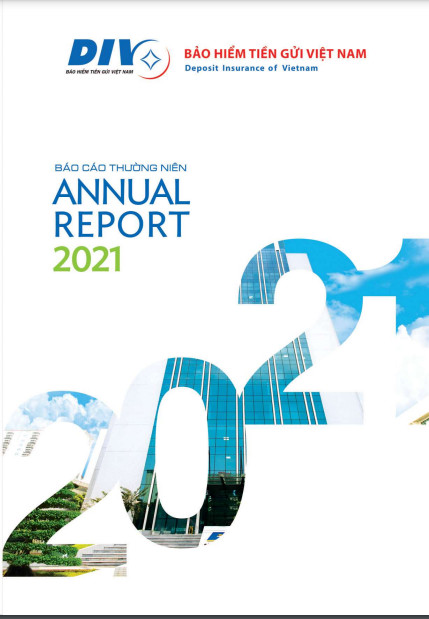Total residential deposits hit record high
According to published data, by the end of July 2024, the total means of payment throughout the economy, reached more than 16.4 million billion VND, an increase of 2.52% compared to the end of 2023.
Specifically, deposits of economic organizations reached more than 6.76 million billion VND, down 1.07%. Meanwhile, total deposits of residents reached more than 6.83 million billion VND, up 4.68% compared to the end of 2023, which is also the highest level ever.
Statistics show that compared to the beginning of this year, interest rates for term deposits at many banks have increased by 0.5-1% per year. Long-term interest rates have increased beyond 6.0% per year at many banks.
According to statistics from the SBV, the ratio of outstanding loans to total deposits of the entire system by the end of June 2024 reached 78.25%, of which the group of state-owned commercial banks reached 82.62%; the group of joint-stock commercial banks reached 80.78%; the group of joint-venture and foreign banks reached 42.23%; and credit institutions that are cooperatives reached 50.82%.
By the end of June 2024, the charter capital of the entire system of credit institutions reached more than 1,069 trillion VND, an increase of 6.6% compared to the end of 2023. The group of state-owned commercial banks had a total charter capital of 228,229 billion VND, an increase of 4.75%; the group of joint stock commercial banks had a total charter capital of 587,850 billion VND, an increase of 8.35%.
Regarding total assets, by the end of June 2024, the total assets of the entire system reached more than 21 million billion VND, of which the group of state-owned commercial banks had total assets of 8,749,389 billion VND, up 5.08%; the group of joint stock commercial banks had total assets of 9,436,324 billion VND, up 5.0%...
Despite fluctuations in deposit interest rates, the steady growth of people's deposits over the past two years reflects a cautious and prudent approach to investment. This prudence is a wise strategy in the face of unpredictable market conditions, making the audience feel wise and prudent in their financial decisions.
In addition, since April 2024, interest rates have begun to show signs of a slight increase, contributing to attracting people's capital into bank deposits. This shows that people still prefer to deposit money in banks as a means of preserving capital against market fluctuations and unpredictable risks.
Be a smart depositor
Savings is an effective investment channel. Depositors need to be careful to keep their capital safe.
Article 2, Circular 48/2018/TT-NHNN, dated January 31, 2018, stipulates that credit institutions receiving savings deposits are credit institutions established and operating under the provisions of the Law on Credit Institutions, including Commercial banks, cooperative banks, microfinance institutions, people's credit funds, and foreign bank branches.
According to the Law on deposit insurance, credit institutions mobilizing deposits from individuals must participate in deposit insurance. This reassures depositors that their deposits are protected in case the credit institution goes bankrupt or becomes insolvent, and their legitimate rights and interests are always given priority, providing a sense of reassurance and protection to the audience.
Only one deposit insurance organization has existed in Vietnam recently—the Deposit Insurance of Vietnam (DIV)—a state financial organization operating not for profit, implementing deposit insurance policies, and protecting the rights and legitimate interests of depositors.
So, how can depositors know that a credit institution has participated in deposit insurance?
Article 15 of the Law on Deposit Insurance stipulates that "the institution must publicly post a copy of the Certificate of participation in deposit insurance at all transaction points that accept deposits."
A copy of the Certificate of participation in deposit insurance is a copy issued by DIV from the original book. It is a document showing that a credit institution has participated in deposit insurance.
Credit institutions that have participated in the deposit insurance must publicly post a copy of the Certificate of participation in the deposit insurance at the head office of insured institutions, the branch office of insured institutions, and all transaction points that receive individual deposits. Therefore, depositors can identify that a credit institution has participated in the deposit insurance by observing whether the transaction point of the credit institution has posted a copy of the Certificate of participation in the deposit insurance or not. The copy of the Certificate of participation in the deposit insurance has full information about the Certificate of participation in the deposit insurance, including the name of the deposit insurance, the name of the insured institutions, and other contents according to the regulations of DIV.< /p>
Individual depositors who deposit money into insured institutions do not have to pay deposit insurance premiums. Credit institutions that mobilize deposits from individuals must participate in the deposit insurance scheme and are responsible for paying deposit insurance premiums in full and on time.
When depositing savings, people should:
Do not pre-sign documents when making deposit or withdrawal procedures. Do not sign on blank sheets of paper when transferring money. Read the information on the documents carefully before signing to avoid and prevent possible risks.
Refrain from depositing money first and receiving the book later because if the employee quits or runs away and takes the customer's money, there will be no proof that it is their money. The sender will be at a great disadvantage.
After receiving the savings book, customers need to carefully check the information in the book because customers may be at risk when bank staff accidentally enter the wrong amount of money you deposit or intentionally steal money if the customer does not detect it. After all, they do not check the savings book, or the savings book needs to have complete information.
Maintain one signature throughout all banking transactions. Do not sign each document differently, as this can lead to difficulties when withdrawing or receiving money; sometimes, it will take much time to prove that the savings book is yours.
Keep your savings book carefully. If you lose it, notify the bank immediately. Do not lend your savings book to anyone because they can forge your signature or ID card and collude with bank employees to withdraw money from your account.
Currently, in addition to opening a savings book directly at the bank, people can make savings online. Many people choose this form because of the quick procedures and attractive interest rates. People can make deposits, final payments, renewals, check deposit information and deposit interest rates quickly on the banking app on their phones. However, when making online transactions, customers also need to be extremely careful and absolutely do not disclose information, accounts, and passwords to log into online savings books to avoid being taken advantage of by criminals.
Communication Department

























